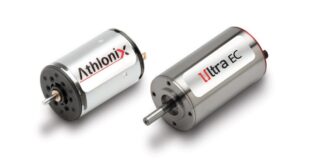Keith Brown explains how businesses can maintain reliable power sources
Before smartphones, we relied on torches and candles for light when the power went out. If we ran out of batteries or matches, our back up plan failed.
Many applications rely on back-up power to kick in in an emergency and performing maintenance will make sure that our power plan B is a success.
As an increasingly technological society reliant on electronics for more and more applications, ensuring stand-by solutions are in place for large scale operations is more vital now than ever before. To run reliably, power generation must be paired with careful maintenance and regular monitoring.
Servicing is central in ensuring that, when needed, generators for emergency or back-up applications are ready to power businesses. Failing to do so could lead to downtime, meaning potential loss in reputation and a definite loss in operational time and profit.
As the heart of the generator, the engine should be at the forefront of service surrounding reliable stand-by power.
Regular care
Keeping an eye open for early signs of engine faults can highlight a situation before it grows into a problem. Performing daily and weekly maintenance checks is a small but effective way to minimise repair costs.
Daily checks, such as cooling system coolant level, engine air cleaner service, engine air pre-cleaner, engine oil level, fuel system primary filter and v-belts are routine habits that can both prevent or immediately detect faults.
Other checks, such as in the fuel tank, for water and sediment or, if necessary draining, may be required every 50 service hours or on a weekly basis depending on how frequently the generator is used.
If the operator is unclear, they can search for training courses on factors like correct fluid usage, application specific maintenance or operating in extreme environments.
Training can also help operators install partially automated maintenance checks to inform suppliers in real time in on the health of an engine.
Two steps ahead
Automating maintenance is an example of how, with the right equipment and expertise, reliable power generation can be as simple as collaborating with your supplier.
For example, Perkins’ Smart cap monitors engines in real time, minimising the quantity of checks operators are responsible for and providing immediate warnings if values are abnormal.
Regular care can also be aided by less frequent but more thorough outsourced checks.
For example sending a sample to a fluid analysis lab, where specialists use state-of-the-art equipment to analyse oil, fuel and coolant samples to identify issues that could not be detected by routine checks.
Fluid analysis labs use infrared sensors to determine the overall health of the sample, by detecting nitration, sulphation, oxidation and soot levels.
Specialists test the number and size of particles to determine how clean the sample is and vaporise it to test for the presence of trace metals. Fuel, oil and coolant health can drastically affect the efficiency of an engine, potentially leading to damaged bearings and system failure.
With tailored reports informed by regular sample analysis, operators can perform repairs on internal components before symptoms of critical failure emerge.
When the lights go out, we need confidence that our back up generators will kick in. When operators and suppliers collaborate, keeping an engine healthy can be simple.
Keith Brown, Technical Manager at DiPerk Power Solutions.
 Engineer News Network The ultimate online news and information resource for today’s engineer
Engineer News Network The ultimate online news and information resource for today’s engineer


